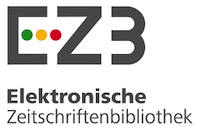Towards Association Rule-based Item Selection Strategy in Computerized Adaptive Testing
Towards Association Rule-based Item Selection Strategy in Computerized Adaptive Testing
##plugins.themes.bootstrap3.article.main##
Una de las etapas más importantes de las pruebas adaptativas informatizadas es la selección de ítems, en la cual se utilizan diversos métodos que presentan ciertas debilidades al momento de su aplicación. Así, en este trabajo, se propone la integración de la minería de reglas de asociación como criterio de selección de ítems en un sistema CAT. Se presenta el análisis de algoritmos de minería de reglas de asociación como Apriori, FP-Growth, PredictiveApriori y Tertius en dos conjuntos de datos con el fin de conocer las ventajas y desventajas de cada algoritmo y elegir el más adecuado. Se compararon los algoritmos teniendo en cuenta el número de reglas descubiertas, el soporte y confianza promedios y la velocidad. Según los experimentos, Apriori encontró reglas con mayor confianza y soporte en un menor tiempo.
Descargas
##plugins.themes.bootstrap3.article.details##
Agrawal, R., Imielinski, T. and Swam, A. (1993). Mining association rules between sets of items in large databases. In Proceedings of the ACM SIGMOD International Conference on Management of Data. https://doi.org/10.1145/170036.170072 DOI: https://doi.org/10.1145/170035.170072
Albano, A. et al. (2019). Computerized Adaptive Testing in Early Education: Exploring the Impact of Item Position Effects on Ability Estimation. Journal of Education Measurement, 56(2), 437-451. Bengs, D., Brefeld, U. and Krohne, U. (2018). Adaptive Item Selection Under Matroid Constraints. Journal of Computerized Adaptive Testing, 6(2), 15-36. https://doi.org/10.1111/jedm.12215 DOI: https://doi.org/10.7333/1808-0602015
Chen, Y. et al. (2017). Research on CAT Unified Model Based on Cognitive Diagnosis Theory. In Proceedings of the 6th International Conference on Information Engineering. https://doi.org/10.1145/3078564.3078566 DOI: https://doi.org/10.1145/3078564.3078566
Chen, J.-H., Chao, H.-Y. and Chen, S.-Y. (2019). A Dynamic Stratification Method for Improving Trait Estimation in Computerized Adaptive Testing Under Item Exposure Control. Applied Psychological Measurement, 44(3), 182-196. https://doi.org/10.1177/0146621619843820 DOI: https://doi.org/10.1177/0146621619843820
Dahdouh, K. et al. (2019). Association Rules Mining Method of Big Data for E-Learning Recommendation Engine. Advanced Intelligent Systems for Sustainable Development, 5, 477-491. https://doi.org/10.1007/978-3-030-11928-7_43 DOI: https://doi.org/10.1007/978-3-030-11928-7_43
Djenouri, Y. et al. (2014). An Efficient Measure for Evaluating Association Rules. In 6th International Conference of Soft Computing and Pattern Recognition (SoCPaR), Tunis, Tunisia. https://doi.org/10.1109/SOCPAR.2014.7008041 DOI: https://doi.org/10.1109/SOCPAR.2014.7008041
Du, Y., Li, A. and Chang, H.-H. (2018). Utilizing Response Time in On-the-Fly Multistage Adaptive Testing. Quantitative Psychology, 107-117. https://doi.org/10.1007/978-3-030-01310-3_10 DOI: https://doi.org/10.1007/978-3-030-01310-3_10
Flach, P. and Lachiche, N. (2001). Confirmation- Guided Discovery of First-Order Rules with Tertius. Machine Learning, 42(1), 61-95. https://doi.org/10.1023/A:1007656703224 DOI: https://doi.org/10.1023/A:1007656703224
Gu, J., Zhou, X. and Yan, X. (2018). Design and Implementation of Students' Score Correlation https://doi.org/10.1145/3206157.3206165 DOI: https://doi.org/10.1145/3206157.3206165
Analysis System. In Proceedings of the 2018 International Conference on Big Data and Education.
Han, J., Kamber, M. and Pei, J. (2012). Data Mining Concepts and Techniques. New York, USA: Elsevier.
Ju, C. et al. (2015). A Novel Method of Interestingness Measures for Association Rules Mining Based on Profit. Discrete Dynamics in Nature and Society, 4, 1-10. https://doi.org/10.1155/2015/868634 DOI: https://doi.org/10.1155/2015/868634
Lee, C.-S. et al. (2018). PSO-based Fuzzy Markup Language for Student Learning Performance Evaluation and Educational Application. Transactions on Fuzzy Systems, 26(5), 2618-2633. https://doi.org/10.1109/TFUZZ.2018.2810814 DOI: https://doi.org/10.1109/TFUZZ.2018.2810814
Lin, C.-J. and Chang, H.-H. (2019). Item Selection Criteria with Practical Constraints in Cognitive Diagnostic Computerized Adaptive Testing. Educational and Psychological Measurement, 79(2), 335-357. https://doi.org/10.1177/0013164418790634 DOI: https://doi.org/10.1177/0013164418790634
Miyazahua, Y. and Ueno, M. (2019). Computerized Adaptive Testing Method Using Integer Programming to Minimize Item Exposure. Advances in Intelligent Systems and Computing, 11(28), 105-113. https://doi.org/10.1007/978-3-030-39878-1_10 DOI: https://doi.org/10.1007/978-3-030-39878-1_10
Prajapati, D., Garg, S. and Chauhan, N. (2017). Interesting association rule mining with consistent and inconsistent rule detection from big sales data in distributed environment. Future Computing and Informatics Journal, 2(1), 19-30. https://doi.org/10.1016/j.fcij.2017.04.003 DOI: https://doi.org/10.1016/j.fcij.2017.04.003
Rodríguez-Cuadrado, J. et al. (2020). Merged Tree-CAT: A fast method for building precise Computerized Adaptive Tests based on Decision Trees. Expert Systems with Applications, 143, 113066. https://doi.org/10.1016/j.eswa.2019.113066 DOI: https://doi.org/10.1016/j.eswa.2019.113066
Rubio Delgado, E. et al. (2018). Analysis of Medical Opinions about the Nonrealization of Autopsies in a Mexican Hospital Using Association Rules and Bayesian Networks. Scientific Programming, 7, 1-21. https://doi.org/10.1155/2018/4304017 DOI: https://doi.org/10.1155/2018/4304017
Scheffer, T. (2001). Finding association rules that trade support optimally against confidence. Principles of Data Mining and Knowledge Discovery, 9, 424-435. https://doi.org/10.1007/3-540-44794-6_35 DOI: https://doi.org/10.1007/3-540-44794-6_35
Sheng, C., Bingwei, B. and Jiecheng, Z. (2018). An Adaptive Online Learning Testing System. In ICIET 18 Proceedings of the 6th International Conference on Information and Education Technology. https://doi.org/10.1145/3178158.3178187 DOI: https://doi.org/10.1145/3178158.3178187
Stafford, R. et al. (2019). Comparing computer adaptive testing stopping rules under the generalized partial-credit model. Behavior Research Methods, 51(3), 1305-1320. https://doi.org/10.3758/s13428-018-1068-x DOI: https://doi.org/10.3758/s13428-018-1068-x
Tokusada, Y. and Hirose, H. (2016). Evaluation of Abilities by Grouping for Small IRT Testing Systems. In 5th IIAI International Congress on Advanced Applied Informatics (IIAI-AAI), Kumamoto, Japan. https://doi.org/10.1109/IIAI-AAI.2016.50 DOI: https://doi.org/10.1109/IIAI-AAI.2016.50
Wang, F. et al. (2018). Association Rule Mining Based 1 Quantitative Analysis Approach of Household Characteristics Impacts on Residential Electricity Consumption Patterns. Energy Conversion and Management, 171, 839-854. https://doi.org/10.1016/j.enconman.2018.06.017 DOI: https://doi.org/10.1016/j.enconman.2018.06.017
Yan, X., Zhang, C. and Zhang, S. (2009). Confidence Metrics for Association Rule Mining. Applied Artificial Intelligence, 23(8), 713-737. https://doi.org/10.1080/08839510903208062 DOI: https://doi.org/10.1080/08839510903208062
Ye, Z. and Sun, J. (2018). Comparing Item Selection Criteria in Multidimensional Computerized Adaptive Testing for Two Item Response Theory Models. In 3rd International Conference on Computational Intelligence and Applications (ICCIA), Hong Kong, China. https://doi.org/10.1109/ICCIA.2018.00008 DOI: https://doi.org/10.1109/ICCIA.2018.00008
Yigit, H., Sorrel, M. and de la Torre, J. (2019). Computerized Adaptive Testing for Cognitively Based Multiple-Choice Data. Applied Psychological Measurement, 43(5), 388-401. https://doi.org/10.1177/0146621618798665 DOI: https://doi.org/10.1177/0146621618798665


































